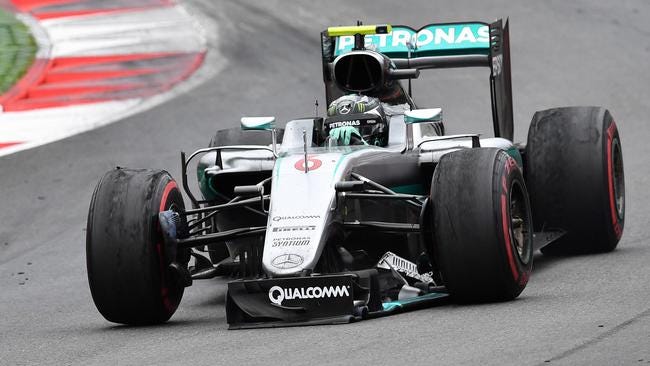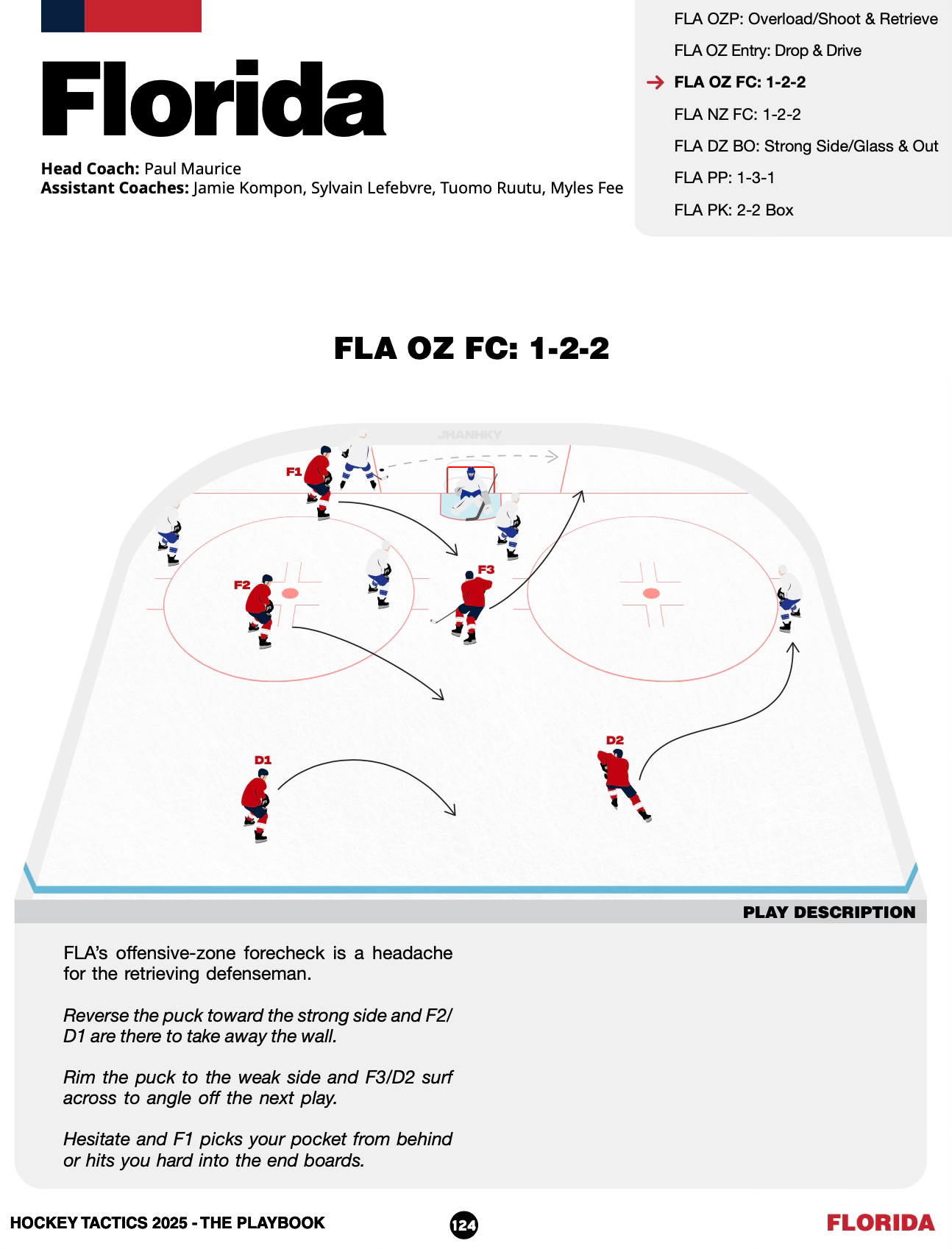From Process to Outcome
The NHL is a copycat league. What should other team *actually* copy from the Stanley Cup champions?
Halfway through the 2020s, the decade’s belonged to the Florida Panthers.
After General Manager Bill Zito’s hiring in September 2020, the team showed immediate regular-season improvement before breaking through with three consecutive Stanley Cup final berths. In parallel, the league as a whole initially embraced skill and speed before swinging back toward toughness and grit.
So what should the other 31 teams take away from FLA’s success?
On a surface level, the lessons appear to be:
Play dump-and-chase
Overpay players such as Sam Bennett and Aaron Ekblad
Trade for tall defensemen (Seth Jones) and old forwards (Brad Marchand) at the deadline
Draft for role and physical maturity (Anton Lundell) rather than offensive ceiling
etc.
Some teams will definitely do one or more of those things in the coming months.
But I think the Florida Model is more complex than that.
The best way I can break it down is by borrowing concepts from three dissimilar fields: cybernetics, engineering and economics.
1. Requisite Variety (cybernetics)
“The complexity of a system's internal responses must be at least as great as the complexity of the environment it's in to maintain stability and control.”
Why are jet airliner cockpits littered with thousands of dials, switches and screens?
Because the pilots need all of those inputs to maintain control in a 3D environment
Why do old people more frequently break their hips than children do?
Because muscle mass, bone density and general coordination decline with age, making old people less well-adapted to environmental extremes
What makes a hockey player good?
It’s their ability to adapt their movements (skating, stickhandling, shooting, etc.) to the demands of the competitive environment
In the Zito era, the Florida Panthers look to acquire big, strong, fast and tough players, but mostly they target good players.
Per SportLogiq, FLA dominated the league in goals scored following a turnover during the 2025 playoffs. This stat is not just a measure of how gritty a team is, but rather a reflection of variety:
Ability to close quickly on the forecheck
Ability to gain body position and win the puck
Ability to scan for options before and after a battle
Ability to get the puck from a non-scoring position (the wall) into a scoring position (the slot)
Ability to shoot the puck into the net from a scoring position
Some of those skills are accessible to so-called grit guys and cardio merchants. But only truly excellent players such as Sasha Barkov, Sam Reinhart, Matthew Tkachuk et. al. can take these plays to their logical conclusion on a consistent basis.
This postseason, FLA had three forward lines’ worth of such players. The same could not be said for the teams it beat on the way to the title.
2. Fault Tolerance (engineering)
“A system's ability to continue operating without interruption or service degradation despite the failure of one or more of its components.”
Formula One is contested by the fastest circuit racing cars in the world. It’s also contested by some of the most fragile machines in existence.
Go off-track in the wrong spot and you’ll lose multiple positions
Break a half-inch piece of carbon fiber and your race may be over
Relative to every other type of car, Formula Ones are grossly fault intolerant, whether in relation to mechanical breakdowns or in relation to driver error.
The fluid, possession-based tactics of the Joel Quenneville/Andrew Brunette Panthers worked great during the regular season against average competition, but broke down often enough in the playoffs to result in back-to-back series losses against Tampa Bay.
Paul Maurice’s Winnipeg Jets had the repuation of playing it overly safe. But with FLA, Maurice and his staff molded the team into one which is aggressive at forcing errors, at taking advantage of the other teams’ lack of fault tolerance.
Whereas the Brunette-coached Panthers looked to create controlled entries at all cost (or so it seemed), Maurices’ Panthers are content to punt the puck and sprint up-ice to hunt as a unit.
It’s difficult to create offense out of thin air against strong opposition. Now, when faced with a difficult possession play, Florida defers and then tries to win the puck back in better field position.
3. Division of Labor (economics)
“The separation of tasks in any economic system or organization, allowing participants to specialize.”
Did you grow the wheat used to make your morning bread?
Did you even make your morning bread?
As society shifted from agrarian, to industrial, to post-industrial, people have become more and more specialized in their work. There is no way that we’d have access to microprocessors, the internet or Substack if all of us had to hunt, gather or grow our food.
As a general rule, then, human society is moving in the direction of specialization.
This idea is in direct contradiction of that of Total Hockey, in which players don’t have fixed position and are interchangeable during open play.
Total Hockey hasn’t taken hold at the NHL level simply because it doesn’t work at the highest level. The longer and better a player specializes in a certain position, the more likely that they’ll be good at their job.
Incidentally, Total Hockey can work very well as a development tool at lower levels or on non-winning teams (i.e. Quenneville/Brunette FLA), because it fosters Requisite Variety. But at a certain point specialization becomes mandatory.
FLA’s tactical centerpiece is its offensive-zone forecheck. Even though it appears fluid and spontaneous, there’s nothing random about it.
The Fs track between the dot lanes to cover for the Ds.
The Ds pinch down the wall to help the Fs.
Everyone has a position. Everyone skates forward as hard as they can.
The position requirements are extremely clear.
From a personnel perspective, FLA isn’t adverse to acquiring unidimensional players, especially on the back end. Some have worked out marvellously.
Gus Forsling (“Light”)
Brandon Montour (“Can’t box out”)
Oliver Ekman-Larsson (“Can’t skate”)
Dmitry Kulikov (“Doesn’t read the play”)
Seth Jones (“Can’t defend the rush”)
Others such as Mike Rielly, Adam Boqvist and Tobias Bjornfot haven’t.
In any case, the Zito administration certainly has a knack for finding value on the open market. Some of it is due to excellent pro scouting, but the other part due to an understanding of specialization.


![500+ Best Aviation Pictures [HD] | Download Free Images on Unsplash 500+ Best Aviation Pictures [HD] | Download Free Images on Unsplash](https://substackcdn.com/image/fetch/$s_!5wTb!,w_1456,c_limit,f_auto,q_auto:good,fl_progressive:steep/https%3A%2F%2Fsubstack-post-media.s3.amazonaws.com%2Fpublic%2Fimages%2F8540f59f-e119-42e6-9eb4-173ade756ce6_3000x1987.jpeg)


